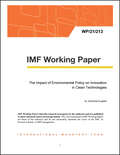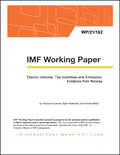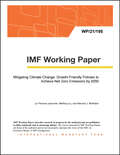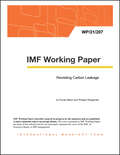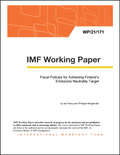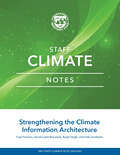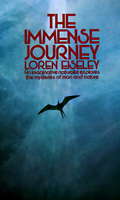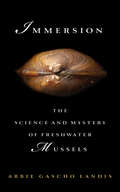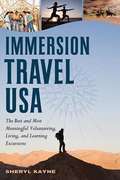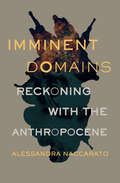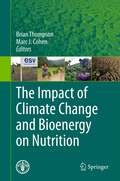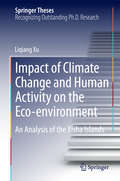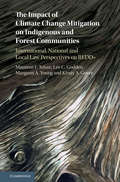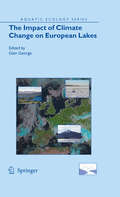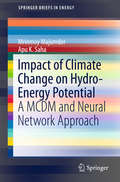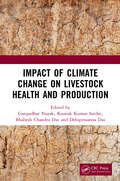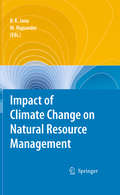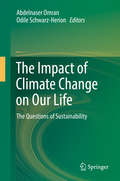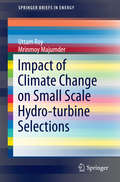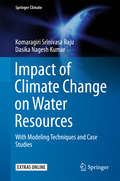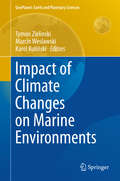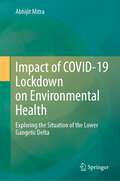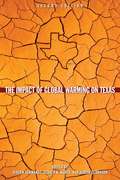- Table View
- List View
IMF: Recent Economic Developments (Imf Working Papers #Imf Staff No. 97/107)
by International Monetary FundA report from the International Monetary Fund.
IMF: Recent Economic Developments (Imf Working Papers #Imf Staff No. 97/107)
by International Monetary FundA report from the International Monetary Fund.
IMF: Recent Economic Developments (Imf Working Papers #Imf Staff No. 97/107)
by International Monetary FundA report from the International Monetary Fund.
IMF: Recent Economic Developments (Imf Working Papers #Imf Staff No. 97/107)
by International Monetary FundA report from the International Monetary Fund.
IMF: Recent Economic Developments (Imf Working Papers #Imf Staff No. 97/107)
by International Monetary FundA report from the International Monetary Fund.
IMF: Recent Economic Developments (Imf Staff Country Reports #Imf Staff No. 97/107)
by International Monetary FundA report from the International Monetary Fund.
IMF: Recent Economic Developments (Imf Staff Country Reports #Imf Staff No. 97/107)
by International Monetary FundA report from the International Monetary Fund.
The Immense Journey
by Loren C. EiseleyAnthropologist and naturalist Loren Eiseley blends scientific knowledge and imaginative vision in this story of man.
Immersion: The Science and Mystery of Freshwater Mussels
by Abbie Gascho LandisAbbie Gascho Landis first fell for freshwater mussels while submerged in an Alabama creek, her pregnant belly squeezed into a wetsuit. After an hour of fruitless scanning, a mussel materialized from the rocks—a little spectaclecase, herself pregnant, filtering the river water through a delicate body while her gills bulged with offspring. In that moment of connection, Landis became a mussel groupie, obsessed with learning more about the creatures' hidden lives. She isn't the only fanatic; the shy mollusks, so vital to the health of rivers around the world, have a way of inspiring unusual devotion.In Immersion: The Science and Mystery of Freshwater Mussels, Landis brings readers to a hotbed of mussel diversity, the American Southeast, to seek mussels where they eat, procreate, and, too often, perish. Accompanied often by her husband, a mussel scientist, and her young children, she learned to see mussels on the creekbed, to tell a spectaclecase from a pigtoe, and to worry what vanishing mussels—70 percent of North American species are imperiled—will mean for humans and wildlife alike. In Immersion, Landis shares this journey, traveling from perilous river surveys to dry streambeds and into laboratories where endangered mussels are raised one precious life at a time.Mussels have much to teach us about the health of our watersheds if we step into the creek and take a closer look at their lives. In the tradition of writers like Terry Tempest Williams and Sy Montgomery, Landis gracefully chronicles these untold stories with a veterinarian's careful eye and the curiosity of a naturalist. In turns joyful and sobering, Immersion is an invitation to see rivers from a mussel's perspective, a celebration of the wild lives visible to those who learn to search.
Immersion Travel U.S.A.: The Best and Most Meaningful Volunteering, Living, and Learning Excursions
by Sheryl KayneImmersion travel is for everyone at all ages and stages of life. It means taking an active part in where you visit in order to learn about the culture, traditions, and characteristics of each particular place. Designed to be a resource and idea book, this guide provides practical information about immersion travel, special considerations and costs, and how to plan and take vacations, sabbaticals, side trips, and more.
Imminent Domains: Reckoning with the Anthropocene
by Alessandra NaccaratoImminent Domains: Reckoning with the Anthropocene invites readers to join a contemplation of survival—our own, and that of the elements that surround us. Using research, lyric prose, and first-hand experiences, Alessandra Naccarato addresses fundamental questions about our modern relationship to nature amidst depictions of landscapes undergoing dramatic transformation.We trace the veins of harm, memory and meaning amongst ecosystems and bioregions; through history and across continents, from the mines of Cerro Rico to the ruins of Pompeii. Arranged by five central elements of survival—earth, fire, water, air and spirit—these essays refute linearity, just as nature does.Naccarato offers not blanket answers about our future, but rather myriad ways to find our own, individual response to an imminent question. We are being called to work together; to dig a trench deep and wide enough that the fires around us might stay at bay. How do we turn towards the fire?
Immortalis (DemonWars series #7)
by R. A. SalvatoreIn this extraordinary third and final work in the second DemonWars trilogy, R. A. Salvatore weaves a diverse tapestry of characters and events from all novels of the series into an epic, unforgettable conclusion as a dark young king is driven by a quest to remake humankind.In Honce-the-Bear, King Aydrian Boudabras wakes in a cold sweat, his conscience haunted by those he has killed in order to garner power, including the rightful king before him, Danube, his mother&’s husband. Now, Aydrian is preparing his armies for war, forging loyalties, playing one adversary against another, and giving those around him barely a glimpse at his remarkable powers. In the neighboring Behren, the evil Yatol Bardoh is unleashing a war engine of his own, using armies of mercenaries and horrific tactics to bring down the walls of Jacintha and to drive a ferocious dragon from the city of Dharyan. Between these two men, an explosive chain of events has been set into motion. Refugees flood the roads and valleys, alliances are formed and broken, navies clash at sea, and assassins seek their moment to strike. With Aydrian&’s power and popularity turning into an avalanche and the courageous Byrnn Dharielle valiantly standing in the way of the Yalot Bardoh, the great players in the DemonWars saga will unite and clash on a single, magnificent stage. In book three of the second DemonWars trilogy, #1 New York Times bestselling author R. A. Salvatore concludes the second trilogy and gathers the whole arc of the seven books of the DemonWars saga in a stunning conclusion that Kirkus Reviews claims &“fans will dance with joy&” to experience.
The Impact of Climate Change and Bioenergy on Nutrition
by Marc J Cohen Brian ThompsonClimate changes will affect food production in a number of ways. Crop yields, aquatic populations and forest productivity will decline, invasive insect and plant species will proliferate and desertification, soil salinization and water stress will increase. Each of these impacts will decrease food and nutrition security, primarily by reducing access to and availability of food, and also by increasing the risk of infectious disease. Although increased biofuel demand has the potential to increase incomes among producers, it can also negatively affect food and nutrition security. Land used for cultivating food crops may be diverted to biofuel production, creating food shortages and raising prices. Accelerations in unregulated or poorly regulated foreign direct investment, deforestation and unsustainable use of chemical fertilizers may also result. Biofuel production may reduce women's control of resources, which may in turn reduce the quality of household diets. Each of these effects increases risk of poor food and nutrition security, either through decreased physical availability of food, decreased purchasing power, or increased risk of disease. The Impact of Climate Change and Bioenergy on Nutrition articulates the links between current environmental issues and food and nutrition security. It provides a unique collection of nutrition statistics, climate change projections, biofuel scenarios and food security information under one cover which will be of interest to policymakers, academia, agronomists, food and nutrition security planners, programme implementers, health workers and all those concerned about the current challenges of climate change, energy production, hunger and malnutrition.
Impact of Climate Change and Human Activity on the Eco-environment
by Liqiang XuThis study describes the fundamentals of assessing the vulnerability of coral islands, as well as environmental management and resource exploitation. Using seabird subfossils, such as bones, guano, eggshells etc. , which have been well preserved on the Xisha Islands in the South China Sea, the author identifies the influences of climate change and human activity on seabird populations and diets. Understanding the past is of great importance for predicting the future, and seabird subfossils provide valuable information, which can be used to study changes in seabird ecology, paleoceanography and palaeoclimate. Furthermore, this study proposes examining the biogeochemical cycling of some elements present in the geosphere, hydrosphere, biosphere and atmosphere. Dr. Liqiang Xu works at the Hefei University of Technology, China.
The Impact of Climate Change Mitigation on Indigenous and Forest Communities: International, National and Local Law Perspectives on REDD+
by Young Tehan Maureen F Godden Lee C Margaret A Gover Kirsty AThe international legal framework for valuing the carbon stored in forests, known as 'Reducing Emissions from Deforestation and Forest Degradation' (REDD+), will have a major impact on indigenous peoples and forest communities. The REDD+ regime contains many assumptions about the identity, tenure and rights of indigenous and local communities who inhabit, use or claim rights to forested lands. The authors bring together expert analysis of public international law, climate change treaties, property law, human rights and indigenous customary land tenure to provide a systemic account of the laws governing forest carbon sequestration and their interaction. Their work covers recent developments in climate change law, including the Agreement from the Conference of the Parties in Paris that came into force in 2016. The Impact of Climate Change Mitigation on Indigenous and Forest Communities is a rich and much-needed new contribution to contemporary understanding of this topic.
The Impact of Climate Change on European Lakes
by Glen GeorgeIn this book, scientists from eleven countries summarize the results of an EU project (CLIME) that explored the effects of observed and projected changes in the climate on the dynamics of lakes in Northern, Western and Central Europe. Historical measurements from eighteen sites were used to compare the seasonal dynamics of the lakes and to assess their sensitivity to local, regional and global-scale changes in the weather. Simulations using a common set of water quality models, perturbed by six climate-change scenarios, were then used to assess the uncertainties associated with the projected changes in the climate. The book includes chapters on the phenology and modelling of lake ice, the supply and recycling of nitrogen and phosphorus, the flux of dissolved organic carbon and the growth and the seasonal succession of phytoplankton. There are also chapters on the coherent responses of lakes to changes in the circulation of the atmosphere, the development of a web-based Decision Support System and the implications of climate change for the Water Framework Directive.
Impact of Climate Change on Hydro-Energy Potential
by Mrinmoy Majumder Apu K. SahaThis Brief presents the impact of climatic abnormalities on hydropower potential of different regions of the World. In this regard, multi-criteria decision making and neural network are used to predict the impact of the change cognitively by an index. The results from the study show that the hydro-energy potential of the Asian region is mostly vulnerable with respect to other regions of the World. The model results also encourage further application of the index to analyse the impact of climate change on potential of hydro-energy.
Impact of Climate Change on Livestock Health and Production
by G D Nayak K K Sardar B C Das D P DasThis volume of 30 chapters contributed by reputed authors covers: Diversification of livestock and crops. Integration of livestock systems with forestry and crop production. Drought and heat wave tolerant varieties. Strategies for reduction of Green House Gases emission from ruminants. Application of GIS and remote sensing technologies. Breeds with inherent genetic capabilities to adapt to climate change. This book also takes into account the climate change adaptation, mitigation practices, and policy frameworks for promotion of sustainable livestock and poultry production. This book is co-published with NIPA. Taylor and Francis does not sell or distribute its print and electronic editions in India, Pakistan, Nepal, Bhutan, Bangladesh and Sri Lanka.
Impact of Climate Change on Natural Resource Management
by Bipal Kr. Jana Mrinmoy MajumderAs climate change takes hold, there is an ever-growing need to develop and apply strategies that optimize the use of natural resources, both on land and in water. This book covers a huge range of strategies that can be applied to various sectors, from forests to flood control. Its aim, as with resource management itself, is to combine economics, policy and science to help rehabilitate and preserve our natural resources. Beginning with papers on carbon sequestration, including the practice of artificial desertification, the topics move on to cover the use of distributed modeling and neural networks in estimating water availability and distribution. Further chapters look at uncertainty analysis applied to the spatial variation of hydrologic resources, and finally the book covers attempts at estimating meteorological parameters in the context of hydrological variables such as evapo-transpiration from stream flow. Within the next decade, the effects of climate change will be severe, and felt by ordinary human beings. This book proposes a raft of measures that can mitigate, if not reverse, the impact of global warming on the resources we have all come to depend on.
The Impact of Climate Change on Our Life: The Questions Of Sustainability
by Abdelnaser Omran Odile Schwarz-HerionThis book introduces the highly topical issue from many different angles, sensitizing readers to the various challenges to human life posed by climate change, identifying possible intentional and inadvertent anthropogenic factors and consequences, and seeking socially and environmentally viable solutions. The book begins by examining the impact of the climate change discussion on science, politics, economy and culture – from its historical origin in the first Club of Rome Report and its inclusion in the UN's SDGs to the Paris Agreement and beyond. Comprising 12 chapters, it analyses the factors which caused the catastrophic 2014 Kelantan flood in Malaysia, focusing on the Kuala Krai district and discusses mud architecture in Wadi Hadramout, Yemen and mitigating the expected effects of climate change on this unique architecture and cultural heritage. It also examines the economic costs of climate change on health and the increased burden on individual expenditures and national health systems. The role of climate change in the water-energy nexus and efforts to increase efficiency in energy and water end-use to increase Queensland’s agricultural sector’s resilience in Australia is addressed, as is water security and climate change issues in developing countries and the potential of partnership procurement strategies for managing sustainable urban water supply in Nigerian cities. It also includes a chapter offering a new approach to waste management, exploring to what extent waste can complicate our daily actions and influence environmental decay, and recommending that renewable materials be sorted and separated from other types of materials to avoid cross-contamination, to increase the value of the materials, and to ease the process of manufacturing. Subsequent chapters identify factors sustaining the municipal solid waste management and practices in Ajdabiya city in Libya, and look at accounting disclosure remedies by exploring areas in which sustainability reporting could expand beyond corporate environmental reporting to additional disclosures, curbing recklessness in pursuing merely economic goals. The book shows – from the perspective of agriculture – how human activities can increase the negative impacts of climate change on lifestyle in Malaysia, suggesting alternative lifestyles and encouraging international cooperative efforts. The last chapters evaluate the impacts of various environmental factors on the local tourism sector in Pakistan, and discuss strategies to tackle climate change, focusing on the opportunities and risks of climate engineering. Since these risks encompass inadvertent negative effects and targeted abuse for covert weather warfare and terrorism that violate the UN’s ENMOD convention, the author recommends viable alternatives to deal with climate change.
Impact of Climate Change on Small Scale Hydro-turbine Selections
by Uttam Roy Mrinmoy MajumderHydropower is found to be one of the most reliable and inexpensive options for renewable energy which was now widely been adopted by many countries to substitute fossil fuel sources. This Brief highlights the impact of climate change on hydropower plants, especially on the turbine design, as turbines are responsible for optimal conversion and regular energy production. The vulnerability of turbines is analyzed with the help of Artificial Neural Networks, followed by Multi Criteria Decision Making methods for development of intelligent indices to represent the level of vulnerability of turbines due to the change in climate.
Impact of Climate Change on Water Resources: With Modeling Techniques and Case Studies (Springer Climate)
by Dasika Nagesh Kumar Komaragiri Srinivasa RajuThis book gives an overview of various aspects of climate change by integrating global climate models, downscaling approaches, and hydrological models. It also covers themes that help in understanding climate change in a holistic manner. The book includes worked-out examples, revision questions, exercise problems, and case studies, making it relevant for use as a textbook in graduate courses and professional development programs. The book will serve well researchers, students, as well as professionals working in the area of hydroclimatology.
Impact of Climate Changes on Marine Environments
by Tymon Zielinski Marcin Weslawski Karol KulińskiThis book contributes to the current discussion on global environmental changes by discussing modifications in marine ecosystems related to global climate changes. In marine ecosystems, rising atmospheric CO2 and climate changes are associated with shifts in temperature, circulation, stratification, nutrient input, oxygen concentration and ocean acidification, which have significant biological effects on a regional and global scale. Knowing how these changes affect the distribution and abundance of plankton in the ocean currents is crucial to our understanding of how climate change impacts the marine environment. Ocean temperatures, weather and climatic changes greatly influence the amount and location of nutrients in the water column. If temperatures and currents change, the plankton production cycle may not coincide with the reproduction cycle of fish. The above changes are closely related to the changes in radiative forcing, which initiate feedback mechanisms like changes in surface temperature, circulation, and atmospheric chemistry.
Impact of COVID-19 Lockdown on Environmental Health: Exploring the Situation of the Lower Gangetic Delta
by Abhijit MitraThis book examines the impacts that the COVID-19 lockdown has had on environmental and ecological health, with a focus on coastal ecosystems in the Lower Gangetic Delta. The book begins with an overview of COVID-19's spread and impact before and after the lockdown in the focus region, then addresses the specific impacts that the lockdown period had and continues to have on air quality, marine and estuarine water quality, coastal biodiversity, and the livelihoods of the region's inhabitants, especially those who live below the poverty line. The decrease in human activity combined with the complete closure of various sectors, including air travel, oil and gas drilling, and construction, has had a pronounced effect on biodiversity and overall environmental health that is yet to be fully realized. The book sheds light on these changes and assesses how biodiversity, ambient air quality, and ecosystem functioning will progress as COVID-19 remains a threat and the lockdown persists. The study will be of interest to researchers, government officials and professionals dealing with disaster management, environmental science, biological science, and health.
The Impact of Global Warming on Texas
by Jurgen Schmandt Gerald R. North Judith ClarksonOverall, this book is an admirable attempt at a discussion of the effects of global warming, and should stimulate discussions of policy options at the state, and even national, level. . . . This thought-provoking book is suitable for environmental decisionmakers in Texas (or in any state) who are trying to deal with global climate change. The book is ideal for supplementing college classes in environmental management and policy. --Science Books and Films This is the most wide-ranging, integrated analysis of climate change impacts on a region that I have seen. . . . it should be read carefully by anyone attempting to assess what climate change means for their region. --William E. Riebsame, associate professor of geography, University of Colorado, Boulder The presence of uncertainty need not immobilize us like a deer trapped in the headlights of an onrushing truck. There is enough information to craft a sound program for a rational response to climate change in Texas. So concludes this report of the Task Force on Climate Change in Texas, an interdisciplinary group of experts convened to study the possible effects of global warming on Texas and to identify policy options for avoiding or mitigating them. After introductory chapters on global climate change, the changing Texas climate, and greenhouse emissions, individual chapters of this study explore the effects of global warming on Texas water resources, estuaries, biodiversity, agriculture, urban areas, and the economy. These essays reveal a wide range of possible effects, from severe stresses on water and coastal resources to low impact in the agricultural sector and in urban areas. Policy options for reducingemissions and mitigating some of their effects are included. Gerald R. North is a distinguished professor of meteorology and oceanography at Texas A & M University. Jurgen Schmandt is director of the Center for Global Studies of the Houston Advanced Research Center and a professor of public affairs at the University of Texas at Austin. Judith Clarkson is a consultant to the Center for Global Studies.
